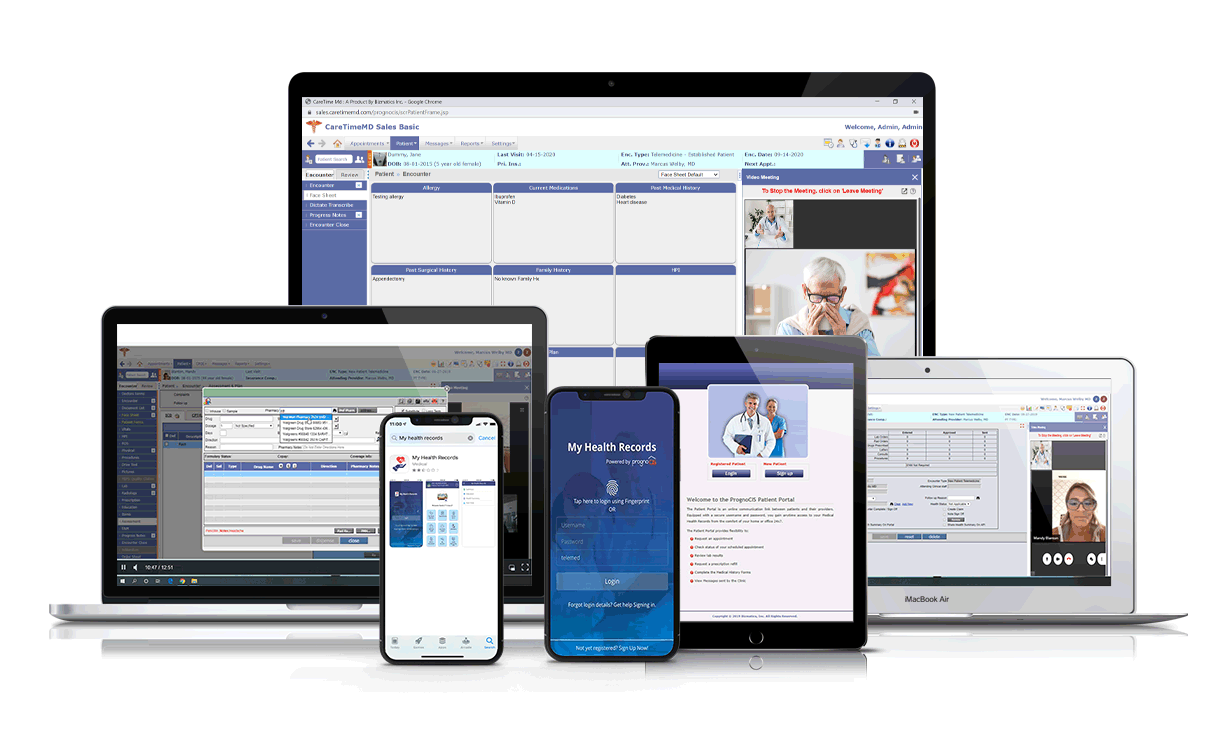It's essential to understand the difference between EHR (Electronic Health Record) and EMR (Electronic Medical Record) in healthcare. While both EMR and EHR store patient health information digitally, EHRs typically encompass a broader range of health data and are interoperable across different healthcare settings. There are many other critical differences between EMR and EHR which can impact patient care and cost of delivering it.
Let us start by understanding the definition of both these terms independently.
What is the Definition of an Electronic Medical Record (EMR)?
An Electronic Medical Record is an electronic version of a patient's paper chart in a practice containing their medical history, diagnoses, medications, treatment plans, immunization dates, allergies, radiology images, and laboratory test results. It is designed to be used within a single healthcare organization to improve patient care by providing accurate, up-to-date information to healthcare providers at the point of care.
By using electronic medical records, which are stored electronically on secure servers, providers can track patient data over time, identify patients for preventive visits and screenings, make better treatment decisions, and improve overall healthcare quality.
However, it is important to note that Electronic Medical Records can be created, gathered, managed, and consulted only by authorized clinicians and staff within one healthcare organization. This ensures the security and privacy of the patient's medical data.
What is the Definition of an Electronic Health Record (EHR)?
An Electronic Health Record (EHR) is a digital version of a patient's health records that includes all relevant clinical and administrative data. It provides secure and instantaneous access to the treating providers and supports various care-related activities, such as decision support, quality management, and outcomes reporting. It goes beyond mere medical encounters by incorporating inputs from pharmacies, laboratories, wearables and specialists, thus offering a holistic perspective on the patient's health journey across different care settings.
Through EHRs, clinicians gain streamlined access to a patient's medical history, aiding in more precise diagnoses and informed treatment decisions. These records are inherently patient-centered, affording real-time data access to patients themselves, empowering them to actively manage their healthcare and ensure the accuracy and currency of their medical information.
Crucially, EHRs are designed to be accessible and managed by authorized clinicians and staff across disparate healthcare organizations. This interoperability fosters a more thorough understanding of a patient's health status, enabling informed and coordinated care decisions. EHRs represent the digital frontier of healthcare, facilitating seamless information retrieval, mitigating errors, and fostering enhanced communication among healthcare providers.

Let us learn more about the differences below.
|
Electronic Medical Records |
Electronic Health Records |
|
Scope of Information |
Contains patient medical history, diagnoses, medications, and treatment plans, usually within a single healthcare organization. |
Designed to be compiled, accessed, and shared by anyone who provides care or treatment for a particular patient or group of individuals. It moves beyond traditional boundaries of practice, health care network, and even geography to provide a complete, longitudinal record of the patient's health to enable more complete care coordination. |
Interoperability |
Cannot share information with other healthcare providers or systems makes it challenging to coordinate care with providers outside of a single organization. |
A higher level of interoperability allows patient data to be shared securely and electronically among authorized healthcare providers. |
Care Coordination |
Limited capabilities for care coordination. |
Designed to support care coordination across multiple healthcare providers and settings. This allows healthcare providers to share information and collaborate on patient care plans. |
Analytics and population health management |
May not have the same level of analytics and population health management capabilities as EHR. |
Often include analytics tools that allow healthcare providers to identify trends and patterns in patient health data. This information can be used to improve patient outcomes and population health. |






